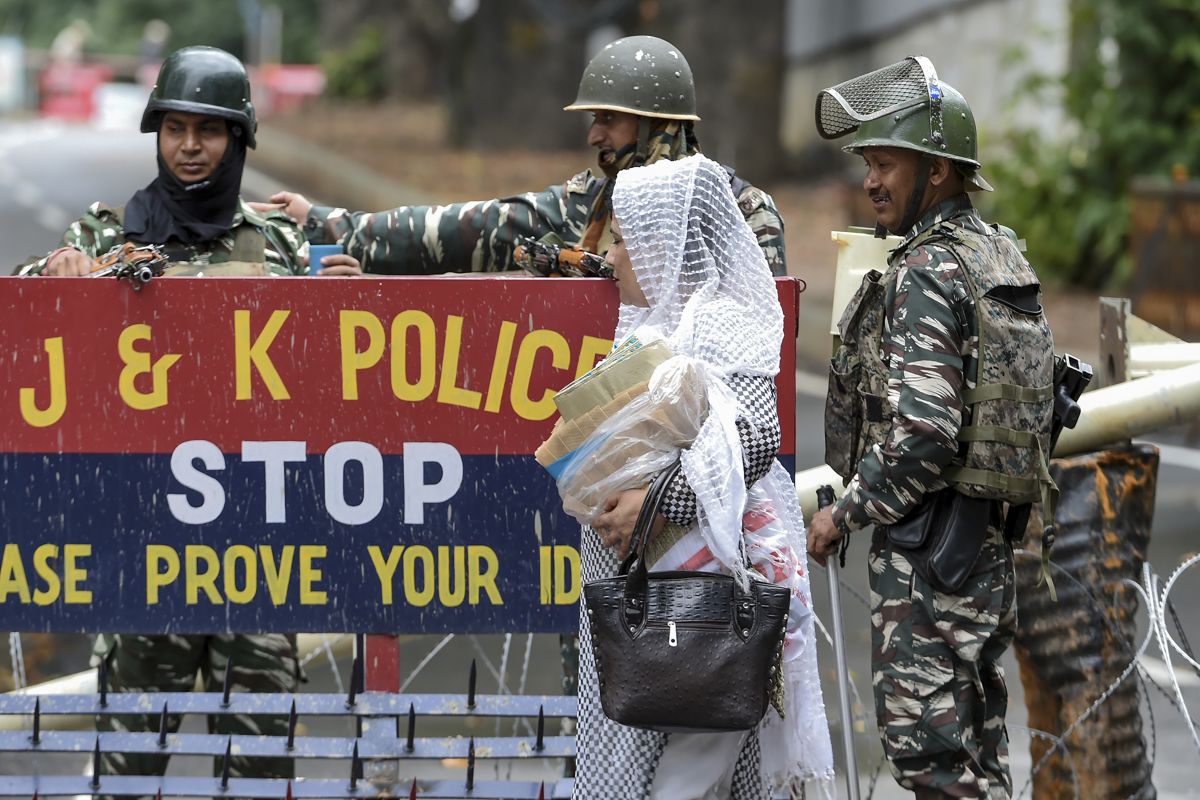The United Nations High Commissioner for Human Rights Michelle Bachelet on Monday expressed “deep concerns” over the severe restrictions imposed in Jammu and Kashmir as the lockdown in the Valley entered its sixth week following the abrogation of Article 370.
In her opening statement at the 42nd session of the Human Rights Council in Geneva, Bachelet said she was deeply concerned with “recent actions by the Government of India on the human rights of Kashmiris, including restrictions on Internet communications and peaceful assembly, and the detention of local political leaders and activists”.
Advertisement
“While I continue to urge the Governments of India and Pakistan to ensure that human rights are respected and protected, I have appealed particularly to India to ease the current lockdowns or curfews; to ensure people’s access to basic services; and that all due process rights are respected for those who have been detained,” the UNHRC chief said.
She further stressed that it is important that the people of Kashmir are consulted and engaged in any decision-making processes that have an impact on their future.
Jammu and Kashmir was put under virtual curfew on 5 August when the Modi government scrapped the Article 370 and split the state into two union territories.
The Indian government has affirmed that restrictions in Kashmir are aimed at preventing Pakistan from creating trouble through proxies and terrorists.
Earlier on Saturday, National Security Advisor Ajit Doval had said that 92.5 per cent of the geographical area of Jammu and Kashmir is free of restrictions.
Further on, the UNHRC chief also referred to the National Register of Citizens (NRC) in Assam.
She said the NRC verification process in the Northeast Indian state of Assam has caused great uncertainty and anxiety, with some 1.9 million people excluded from the final list published on 31 August.
“I appeal to the Government to ensure due process during the appeals process, prevent deportation or detention, and ensure people are protected from statelessness,” she said.
The final National Register of Citizens (NRC) list in Assam was published on August 31, including names of 3.1 crore people and leaving out 19 lakh names.
The Supreme Court-monitored NRC exercise was aimed at identifying whether a person residing in Assam is actually an Indian or a foreigner.
Michelle Bachelet included India in her specific reference to over 35 countries and mentioned Pakistan only in reference to Kashmir, but made no reference to the human rights situation in Pakistan occupied Kashmir, Balochistan or Gilgit-Baltistan.
A second UN human rights report in 13 months on the situation in Jammu and Kashmir had accusations about rising human rights violations and deaths of civilians between May 2018 and April 2019.
The report, released with former Chilean President Michelle Bachelet as the UN Human Rights Commissioner, drew its conclusions on the figures of civilian deaths and situation in the state mainly on the basis of reports by the Jammu and Kashmir Coalition of Civil Society (JKCCS), and had dismissed the Ministry of Home Affair’s lower figures on the number of civilians deaths, the number of injured and so on.
The UN human rights report on Kashmir was harsh on India while it used a milder language for Pakistan.
On the Indian side, it noted that “despite significant challenges, NGOs, human rights defenders and journalists are able to operate, generating documentation on the ongoing human rights violations there.”
However, in Pakistan-occupied Kashmir, “restrictions on the freedoms of expression, opinion, peaceful assembly and association” as well as in Gilgit-Baltistan “have limited the ability of observers, including OHCHR, to assess the human rights situation there”.
While the report was critical of the Indian security personnel and pointed out that “no security forces personnel accused of torture or other forms of degrading and inhuman treatment have been prosecuted in a civilian court”, on the issue of “Abuses by Armed Groups” or by militants, it made no comment.
The report also did not make any adverse comment against the threats or killings by the militant groups.
